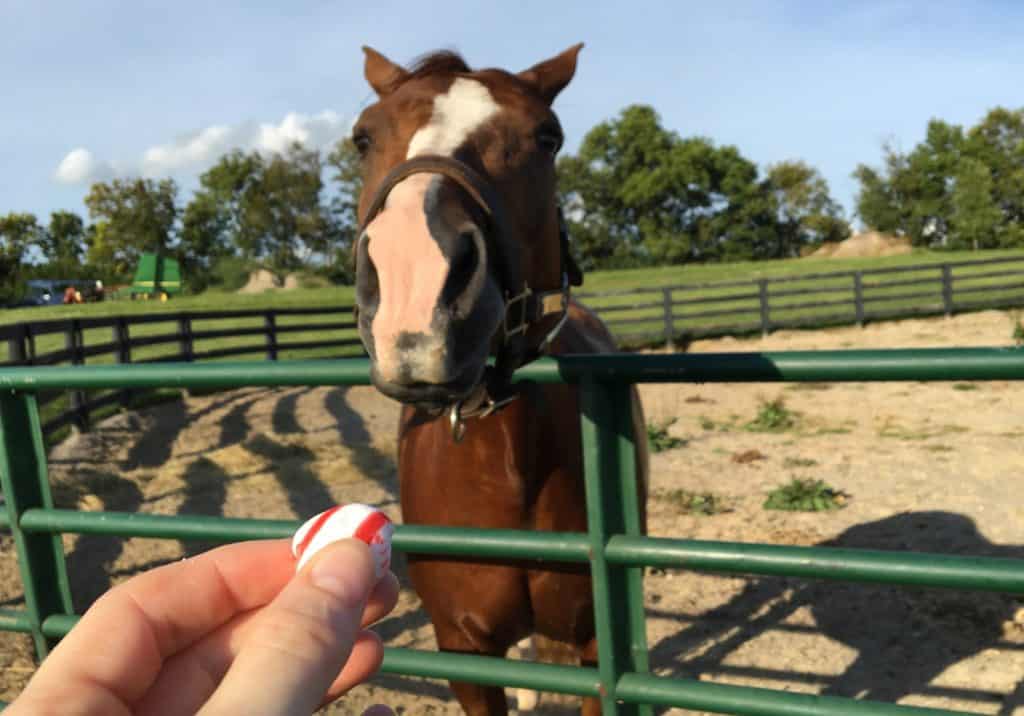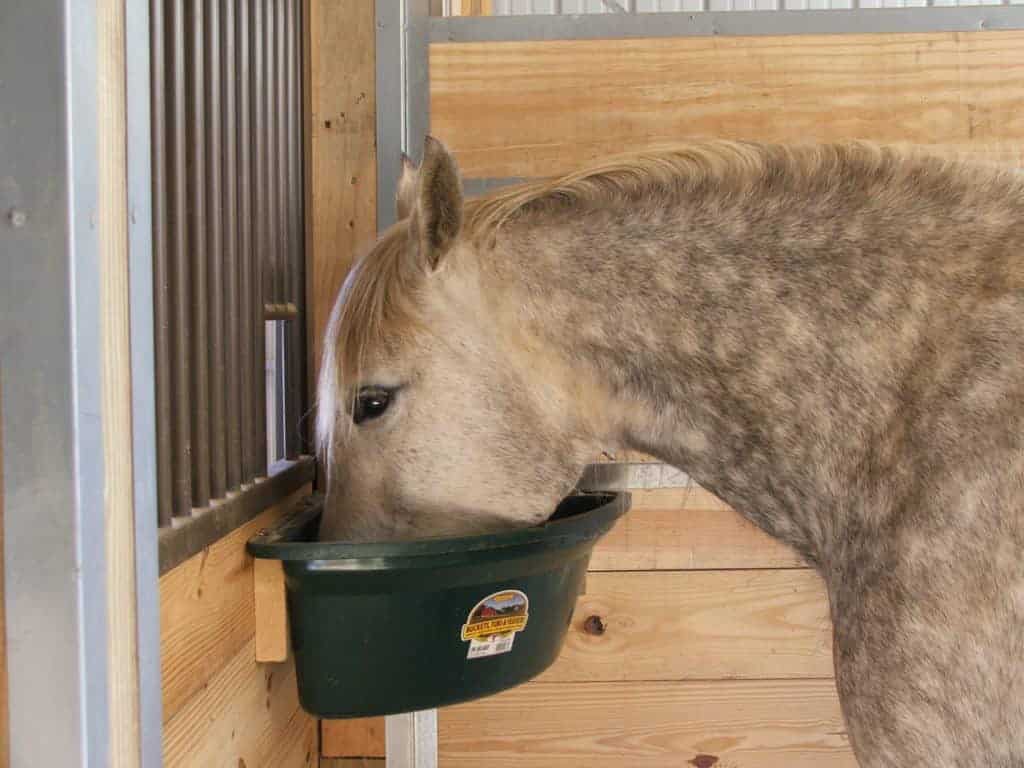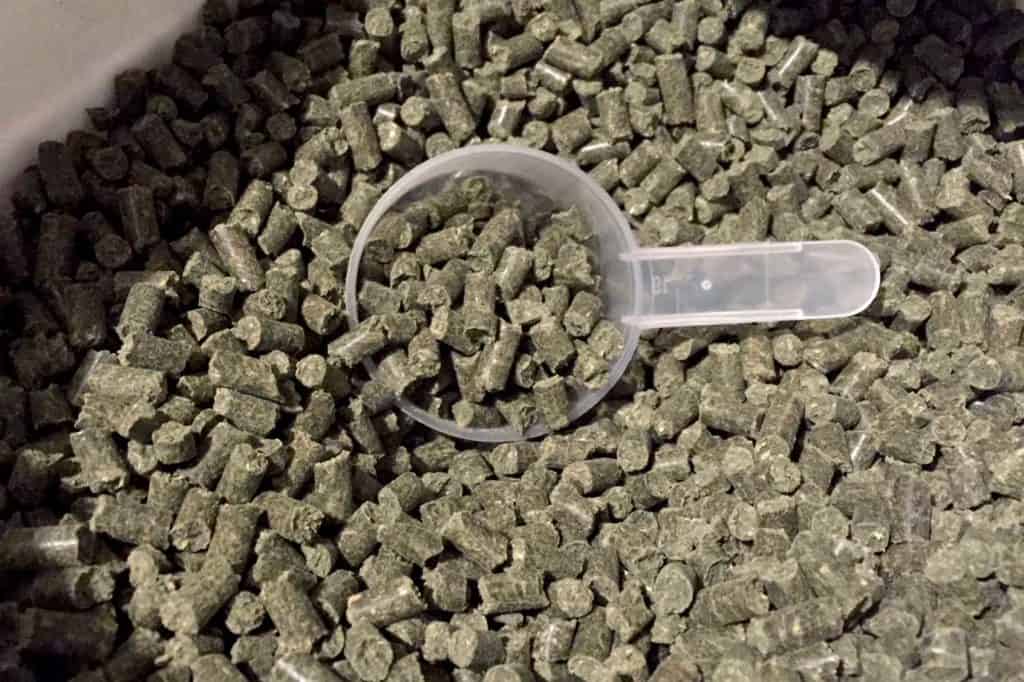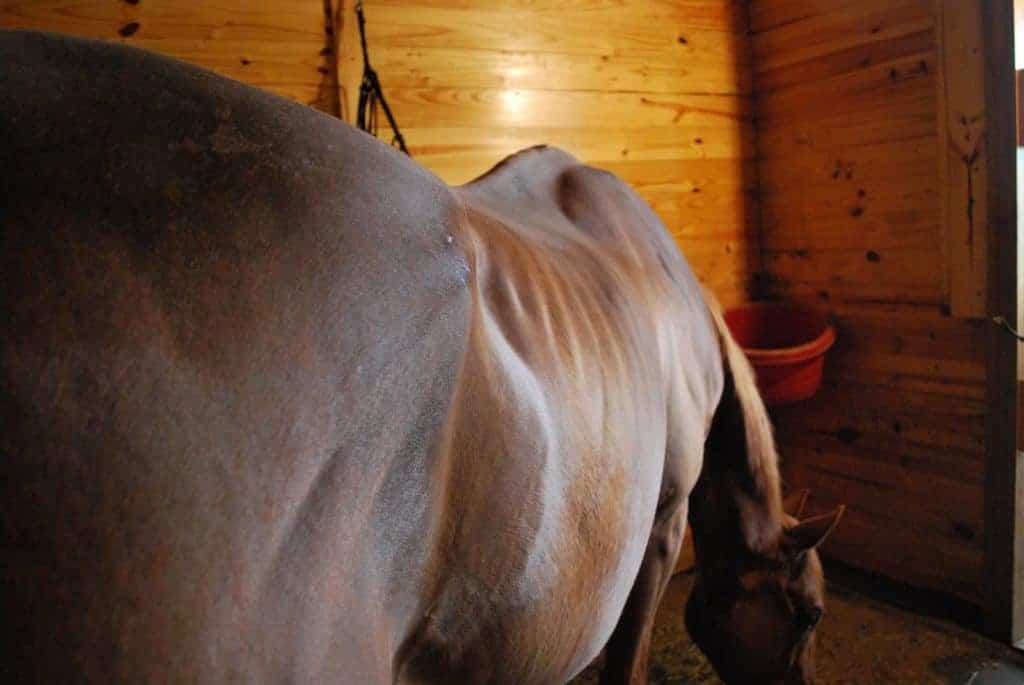
The Ins and Outs of Feeding the OTTB
Careful dietary consideration can help make an OTTB’s transition from racehorse to pleasure or sport horse easier on his digestive system.

Careful dietary consideration can help make an OTTB’s transition from racehorse to pleasure or sport horse easier on his digestive system.

Use our free adult horse weight calculator to estimate your horse’s weight using body length and heart girth measurements.

Research suggests that bisphosphonates can effectively help control clinical signs associated with navicular syndrome in horses, but there’s less research on off-label use. Here’s what to know.

Researchers recently found that, despite what can be an arduous first year of transition, healthwise, owners are overwhelmingly very satisfied with their horses and most said they’d buy an OTTB again.

What are aflatoxins, how do they end up in livestock feed, and are they dangerous to horses? Our equine nutritionist explains.

The USEF said that, in both natural and synthetic forms, CBD is likely to affect a horse’s performance due to its reported anxiolytic (anxiety-reducing) effects.

Will giving my horse peppermints offset the hard work we’re doing to help her lose weight?

Oxidation is a normal process a horse’s body uses to transform nutrients such as carbohydrates, fats, and proteins into energy, but it also results in oxidative damage. Fortunately, antioxidants can help. Here’s what you need to know about the important damage fighters.

Independent equine nutritionist Dr. Clair Thunes shares basic guidelines for feeding horses enough calories and what factors might influence your horse’s caloric needs.

Sweat contains electrolytes (including sodium and chloride), so heavily exercising horses have significantly higher dietary requirements for both minerals than their idle counterparts. Here’s what to know.

Moving north for the summer or south for the winter with horses can make feeding them a consistent diet challenging. An equine nutritionist offers tips to ease the transition.

An independent equine nutritionist answers horse owner questions on forage, feed concentrates, fats, supplements, and more.

Combination supplements claiming to support joints, gut health, coat quality, and more might make feeding time easier, but do they work?

Dr. Kevin Haussler of Colorado State University describes how a saddle should fit horses and how he investigates saddle-fit issues that might cause back pain.

Health conditions, management changes, and palate preferences can affect a horse’s appetite.

Equine nutritionists share details about how your horse’s feed is made and what quality controls are in place to ensure he’s consuming a safe product.
Stay on top of the most recent Horse Health news with
"*" indicates required fields